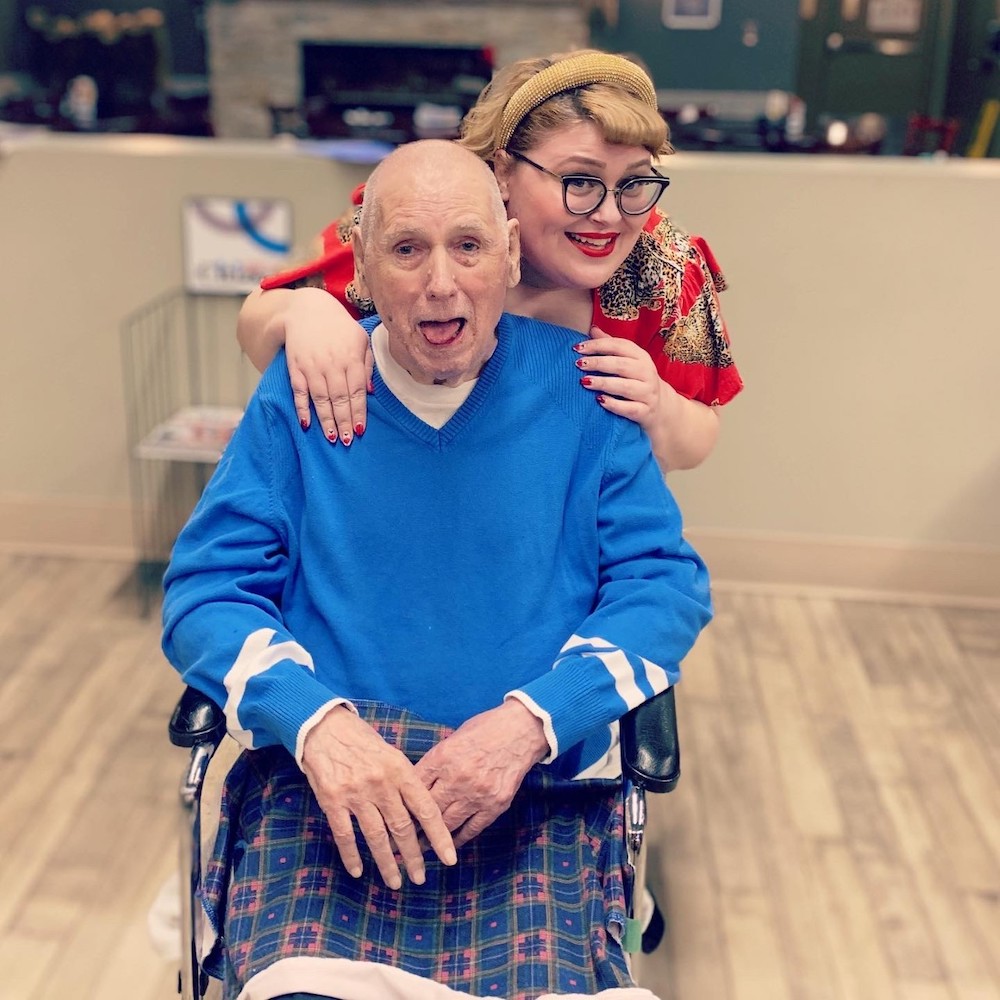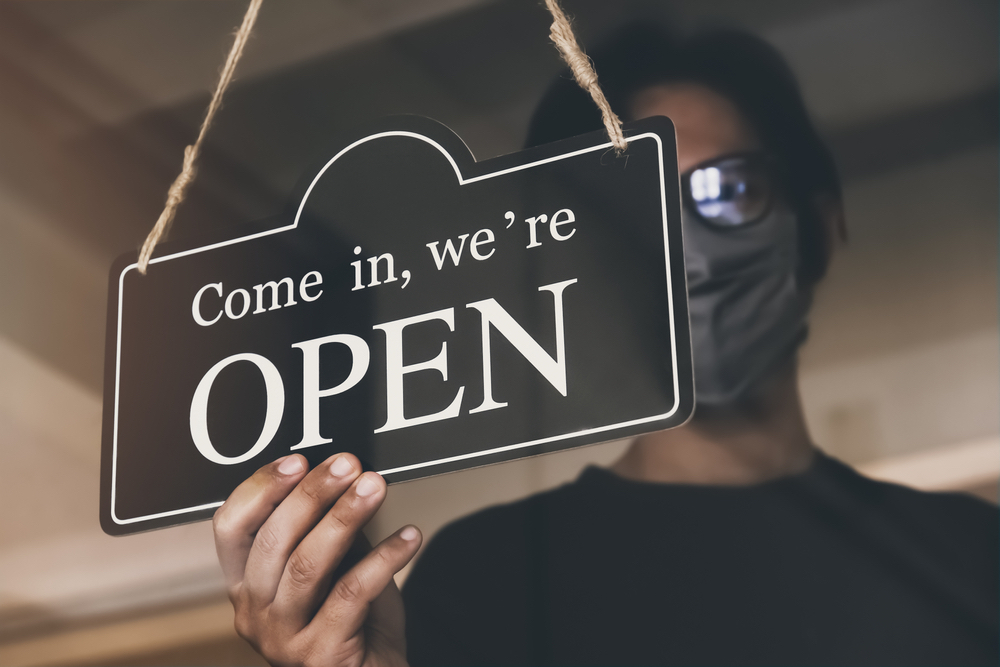On May 2, B.C. unveiled its ambitious four-step, four-month-long restart plan. Not long after, there came an avalanche of personal and professional pressure on me and the artists I work with to be back to 100 per cent in-person work as early as July. I’ve started to receive notices that the online options offered in arts, performance and fitness, as well as curbside and delivery options for businesses established during the pandemic, will be phased out as early as this month.
For many disabled and chronically ill people, the options we’d previously been told were impossible before the pandemic — grocery delivery, virtual attendance options, working from home, video calls to doctors — became possible overnight. The ingenuity needed to make these things happen was always there, but most businesses and organizations didn’t care enough to make it so when the beneficiaries of these options would mostly have been disabled and chronically ill people.
The pivot to virtual has been challenging, and more successful in some industries than others. In the arts sector, virtual programs have enabled continued connection for people who would have attended events in-person, and they’ve also allowed events to be more accessible to a different demographic outside of the urban, able-bodied, and affluent attendees who regularly populate said events. As a chronically ill person, I’ve been able to attend more artistic performances over the past 15 months than I was ever able to attend in-person in a given year. And I am very invested in events — I pitch and help plan them for a living.
Three months ago, I kept virtual vigil with my mom and brother over FaceTime in Manitoba as my Opa, positive for COVID-19, exhaled his last pained breath alone in his long-term care facility.
In October 2020, my best friend, who lives on a farm, contracted COVID-19 at a popular chain restaurant where she was working. Everyone lucky enough to know her has, at some point, marvelled at her casual feats of strength — she once pushed a car uphill to a gas station while heavily pregnant, for example. She’s now four months into medical leave, navigating the effects of long-haul COVID while raising her young daughter. At one point she texted me that she was winded from the short walk back to her house from the school bus.
B.C.’s reopening plan relies on two things: that vaccines will outpace variants, and that enough British Columbians will trust in our provincial health authority and government to get vaccinated. Our approach in this province was never to reach “COVID Zero” through distancing, isolation and paid shutdowns. Instead, our strategy has implied that a certain amount of transmission is not only expected but permissible. It’s not the strategy of harm reduction I hoped to see.
In her recent advice column for Xtra, Kai Cheng Thom references the disability justice concept of “moving at the speed of trust.”
“Going slow can be extremely challenging, because when we are working through conflict and harm, many of us want very much to get to the ‘end’ or the resolution, where things feel good or at least okay again,” she writes.
This is how I feel about the in-person requests that flooded in as soon as B.C.’s restart plan was announced. How might we apply the concept of “moving at the speed of trust” to the way we approach our friends, colleagues and loved ones as we move towards the reopening of this province? How can we repair societal rupture? How can we aim to get everyone what they need?
We tend to think of privilege as being hyper visible — an Instagram carousel post featuring a big showy house, multiple vehicles and a remote lakefront property at which to safely, luxuriously wait out the worst of the pandemic. In the most expensive city in North America, during an ongoing housing crisis, access to a private home, vehicle, options to work from home — and the sanitation practices and flexibility that affords — are notable privileges.
But it’s more than that. Privilege is also an absence of barriers, and the related need to not expel the energy it takes to navigate them.
For some, the pandemic meant that their lives went from a mostly unconscious calculation around risk to a 10- or 20- or 30-step one that varied widely based on people’s personal work and risk factors. Disabled and chronically ill folks in our communities made similar calculations long before our public health authorities ordered us to stay home to navigate our survival in a world that too often sees accessibility as an afterthought.
A “risk budget” is a framework that circulates in chronic illness and disability justice discourse, and it has become useful for me in terms of making decisions for myself during the pandemic.
My calculations often go something like this: “Attending X is now ‘allowed,’ but is it ‘essential’? How much public transportation will I need to ride to access X? Can I expect that people I encounter are complying with mask wearing and social distancing when I’m en route, and when I arrive?” (As the province reaches herd immunity, these risk budget calculations may change, but the framework is still useful.)
Because I’ve been afforded the privilege of working from home, the best way to honour the sacrifices of public-facing workers (and try to keep myself alive) has been to limit my movements to essential medical appointments even as I receive conflicting messages that I should “save” businesses or support healthy people’s yearning for “normalcy” by agreeing to in-person meetings.

As a professional communicator, I’m sympathetic to the challenge of trying to communicate effectively about an evolving health catastrophe to a diverse public. But I wonder what the last 15 months could’ve looked like if some of our public health communication modelled the idea that we owe each other care and honesty, and offered advice on how to have consent-based conversations about risk?
Many of us have internalized messaging that “only” the very sick and elderly will experience severe effects from the virus. That hangs particularly heavy over the last year. Is any amount of life lost in this pandemic acceptable? Is it acceptable that my Opa died an avoidable death because he was 90?
Over three waves we waited anxiously for vaccines and watched as the leaders we elected with hope in our hearts position themselves as, first and foremost, friends to business, making allowances for in-person dining, non-essential travel and indoor browsing. These exceptions have been made for economic reasons — but businesses aren’t people. Businesses support people to live, but so might more robust government relief programs, or funders, that allow businesses to modify their operations and subsidize wages.
Anyone with teachers or school-age students in their lives knows about the constant stream of exposure notices, the rotating self-isolations, lunchtime fogging in crumbling buildings with windows that don’t open. We know that conditions in most schools do not mirror that cheerful commercial that shows several masked children safely distanced in a bright, well-ventilated classroom with an upbeat masked teacher.
Doctors and nurses plead with people on social media to stay home. When we are not measured and careful, ableism takes the form of a devil on our shoulder that tempts the most fearful parts of us to think of the death of others as “inevitable” and our lives as guaranteed, as if we don’t all — regardless of our “comorbidities” — deserve to live every possible moment of our singular, precious lives.
When we don’t put people before business, it becomes easier to justify the burdens and enormous stress that essential, frontline and public-facing workers have shouldered during this time. If you are putting your one precious life on the line, you, at the very least, deserve enough good-faith information to consent to that risk and danger pay on top of compensation that amounts to a living wage.
If the idea of being in a room with 50 other people — something B.C.’s restart plan says may be possible as early as June 15 — terrifies you right now, I don’t think you’re wrong to feel that way. I feel that way, too.
If your lived and generational experience includes being dismissed, forgotten, harmed or failed by doctors, and this experience makes you want to take extra precautions around vaccination, it’s understandable.
We saw people ask, “did they have a pre-existing condition?” in the comment section of every single online article and obituary that crossed our feeds. We read news stories about illegal nightclubs in people’s homes and saw photographs of Third Beach drum circles that looked like Coachella.
Taken together, these things do not necessarily inspire a robust trust that the lives of chronically ill and disabled people, and frontline and essential workers, have been, or are being valued as much as any other life.
I have more questions than answers, but I also have some ideas about what personal and professional commitments to re-establishing trust might look like.
I plan, personally, to communicate with openness and transparency about my own level of risk and comfort with contact in hopes of building a space where friends and colleagues can be open about their own needs. I will ask questions about safety plans and accommodations in the professional spaces, community gathering places and homes I intend to visit. I will continue to push for and offer meeting and event options, like virtual attendance, and video and phone meetings, that the pandemic demonstrated have always been possible.
While we’ve all gone through this pandemic together, we’ve done so on a spectrum. Our experiences of the pandemic have been different based on all kinds of factors — the work we do, the bodies we live in, the income and resources we have access to, the structure of our families. As we “restart,” we do so with different priorities, hesitations, trauma and risk budgets.
“Restarting” offers an opportunity to apply what we’ve learned. We reopen with a responsibility to make changes that don’t leave those who were most isolated before the pandemic without options to continue to safely connect. To do any less is to disrespect and dishonour those who have coped with enormous personal risk to keep our civilization intact, and the lives we deemed at best “inevitable” and at worst “acceptable” to lose. ![]()
Read more: Health, Coronavirus, BC Politics
















Tyee Commenting Guidelines
Comments that violate guidelines risk being deleted, and violations may result in a temporary or permanent user ban. Maintain the spirit of good conversation to stay in the discussion.
*Please note The Tyee is not a forum for spreading misinformation about COVID-19, denying its existence or minimizing its risk to public health.
Do:
Do not: